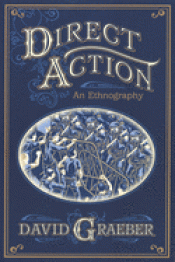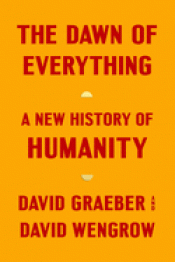Para envío
Pirates have long lived in the realm of romance and fantasy, symbolizing risk, lawlessness, and radical visions of freedom. But at the root of this mythology is a rich history of pirate societies--vibrant, imaginative experiments in self-governance and alternative social formations at the edges of the European empire.
In graduate school, David Graeber conducted ethnographic field research in Madagascar for his doctoral thesis on the island's politics and history of slavery and magic. During this time, he encountered the Zana-Malata, an ethnic group of mixed descendants of the many pirates who settled on the island at the beginning of the eighteenth century. Pirate Enlightenment, or the Real Libertalia, Graeber's final posthumous book, is the outgrowth of this early research and the culmination of ideas that he developed in his classic, bestselling works Debt and The Dawn of Everything (written with the archaeologist David Wengrow). In this lively, incisive exploration, Graeber considers how the protodemocratic, even libertarian practices of the Zana-Malata came to shape the Enlightenment project defined for too long as distinctly European. He illuminates the non-European origins of what we consider to be "Western" thought and endeavors to recover forgotten forms of social and political order that gesture toward new, hopeful possibilities for the future.
"The real story of antiauthoritarianism, gendered economics and direct democracy behind a legendary 18th-century pirate province . . . [Pirate Enlightenment] advances Graeber's mission: to destabilize our idea of what's possible and show that humans can, and often do, create egalitarian worlds built on points of consensus instead of the sharp end of a cutlass."
--Sam Dean, Los Angeles Times
"David Graeber was a highly original thinker and a wonderful writer. Most of all he was someone who sought out challenging problems and set about trying to solve them."
-- Peter Frankopan, New York Times Book Review
" Pirate Enlightenment pluralizes and globalizes our understanding of whose ideas and actions are considered impactful and whose vision shapes the world, a framing that still resonates in contemporary times . . . In his academic writing and political commitments, David Graeber exemplified an ethos of action and conversation . . . As anthropologists have noted, gifts are inalienable--they contain within them something of the giver. Graeber's final book is certainly such a gift." -- Jatin Dua, Science
"A tour de force of anthropological scholarship and an important addition to Malagasy history . . . Certain to be controversial, but all the more important for that."
-- Kirkus
"Pirates captured the imagination of writers and readers centuries ago, and David Graeber reveals why. He has produced one of the most fascinating, original, and altogether brilliant books ever written about these unruly outlaws."
-- Marcus Rediker, author of Villains of All Nations: Atlantic Pirates in the Golden Age
"A characteristically radical re-reading of history that places the social and political experiments of pirates at the heart of the European Enlightenment. A brilliant companion volume to the best-selling Dawn of Everything."
-- Amitav Ghosh
"Daring, carefully speculative, and intellectually ambitious: all qualities that we had come to expect of the late David Graeber. Pirate Enlightenment is a splendid example of Graeber's transformative and convincing case that the Enlightenment was a cosmopolitan and plebian concoction, fabricated far from the European centers of Enlightenment thought."
-- James C. Scott
"Radical, magical and enchanting: a true history of a people's Enlightenment, led by Malagasy women and egalitarian pirates at a crossroads of the world, a land of battle, foment, booty, whose inhabitants liked nothing better than pranking outsiders to spread outlandish tales of their lives."
-- Cory Doctorow, author of Chokepoint Capitalism and Walkaway
"In The Dawn of Everything, David Graeber urged historically minded scholars to consider the ways that human beings have continually pursued three basic freedoms, including the freedom to create new forms of social relations. In this book, he provides a fascinating example of the transformative potential of this proposition. Showing how rumored 18th century 'pirate kingdoms' established in Madagascar can be understood from the perspective of the local Malagasy population, Graeber gives us a glimpse of people, men and women, taking control of the society in which they lived, making new forms of sociality. He links this historical exploration to a second theme of the previous work, the fact that European political philosophers in the 17th and 18th century were responding to ideas coming from outside Europe, providing them inspiration to image freedoms they had not previously experienced. Pirate Enlightenment is, as the author writes, a provocation--but also an inspiration; and a great piece of story-telling." -- Rosemary A. Joyce, Interim Director of Global, International, and Area Studies, Distinguished Professor of Anthropology, University of California, Berkeley






















